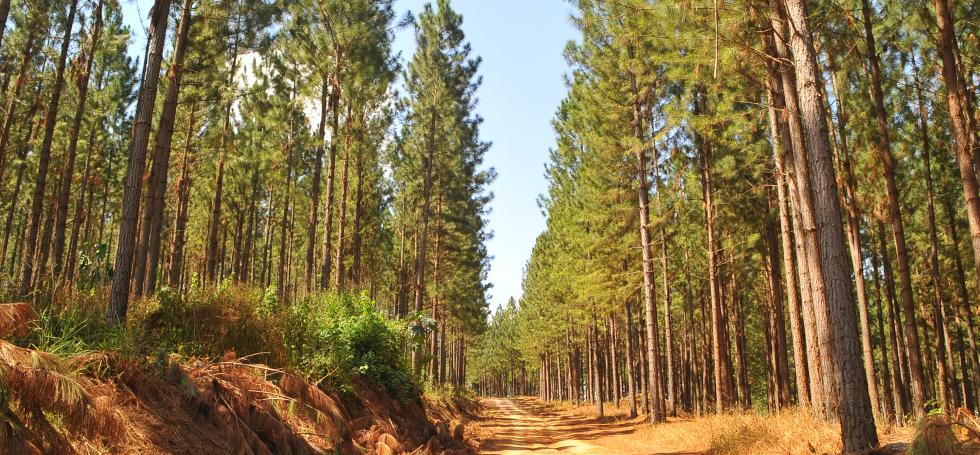Photo credit: Food and Agriculture Organization of the United Nations (FAO)
The Sawlog Production Grant Scheme (SPGS) III Project newsletter, Issue #5 focuses on the role of commercial forest plantations as a vehicle to achieve a green economy.
Recognizing the urgency of acting on climate change, many governments have developed green economy or green growth plans and strategies focusing on the link between the economy and environment. Uganda launched its Green Growth Strategy in 2017 as an implementation tool for ensuring that both National Development Plan (NDP) II and Vision 2040 are achieved in the most sustainable manner. The strategy identifies sustainable forestry management through: a) forest landscape restoration especially on private land, through agro-forestry and afforestation b) incentive support programmes oriented towards livelihoods enhancement, environmental stewardship and (c) landscape management for climate change adaptation, mitigation, food security and sustainable energy.
The SPGS III Project, implemented by FAO on behalf of the Government of Uganda, is one of the several recent initiatives on green growth economy. Funded by the European Union, the project aims at increasing incomes of the rural population through commercial tree planting by medium and large-scale actors and the local communities, while at the same time, mitigating impacts of climate change.
This issue provides Project updates and highlights of key activities. Download the newsletter via the following link: http://www.fao.org/3/ca3822en/ca3822en.pdf. SPGS III is a programme of the Government of Uganda, funded by the European Union and implemented by the Food and Agriculture Organization of the United Nations (FAO).

